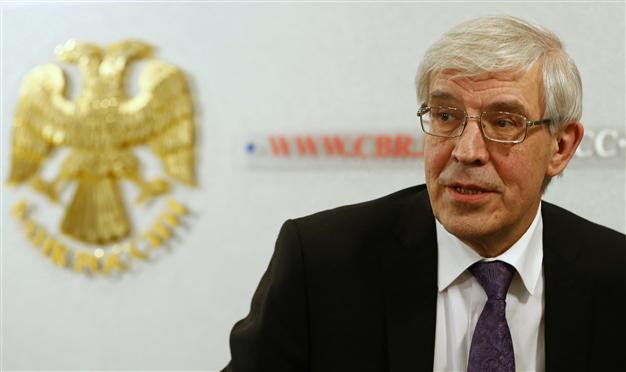Nearly $50 billion left Russia illegally in 2012: central bank
MOSCOW - Agence France-Presse

Russia's Central Bank Governor Sergei Ignatyev leaves after a news conference in Moscow in this February 15, 2013 file photo. REUTERS photo
Russia's central bank said Wednesday that $49 billion had left the country illegally last year in a staggering capital flight equal to 2.5 percent of the country's total economic product.The total outflows of capital from Russia -- transactions that include tax payments and the transfer of profits made through investments -- slipped to $56.8 billion last year after reaching $80.5 billion in 2011.
The central bank's outgoing chairman Sergei Ignatyev told the Vedomosti daily that of the $49 billion illegal capital flight some $14 billion was in illicit trade operations while the rest left Russia through "dubious" cash schemes.
"This could be payments for deliveries of drugs, (illegal) shipments, bribes and paybacks to officials... or managers carrying out purchases in big private companies," Ignatyev said.
"Or these could be tax avoidance schemes," he said.
Capital flight has battered the Russian economy throughout the post-Soviet era and is seen as the primary indicator of a lack of investor trust in the country's reforms.
Polls among investors show concern not only about graft and corruption but also a lack of court independence and fears that Kremlin politics could impact fundamental economic decisions.
President Vladimir Putin has made the fight against corruption into a priority of his fourth mandate and a series of new probes -- including one involving former defence minister Anatoly Serdyukov -- have been launched in recent months.
But no recent official studies have been conducted on criminal cash flows out of Russia and Ignatyev's revelations suggest that the problem was worse than originally thought.
Ignatyev said more than half of the dubious cash operations -- called "grey schemes" by investors -- were performed by a web of companies that all appeared to be interlinked.
"You get a feeling that they are all being controlled by one well-organised group of people," Ignatyev said without specifying who he thought this might be.
















